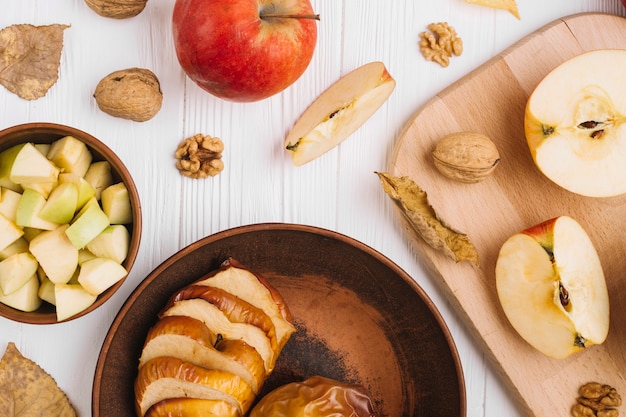
Have eczema? Some foods can help reduce the inflammation causing your dry, itchy, and flaky skin, says nutritionist Olga Hamilton. Eczema is a persistent skin condition that leaves many people with uncomfortable symptoms. In the UK, about one in five children and one in 12 adults have eczema. While your diet may not directly cause eczema, certain foods can trigger flare-ups.
Research indicates that what you eat can worsen eczema, with reactions occurring quickly after food exposure. Nutritionist Olga Hamilton shares five dietary tips to help manage your eczema:
1. Probiotics: These are beneficial bacteria that support your immune system and promote gut health by inhibiting harmful bacteria. Common probiotic strains include Lactobacillus and Bifidobacterium, found in yogurt, kefir, raw cheese, fermented soy products like natto, tempeh, and miso, kombucha, and fermented vegetables such as sauerkraut and kimchi. Eating these can help protect against immune dysfunction and reduce inflammation, key eczema triggers. Try adding a small portion of these foods daily.
2. Prebiotics: These are non-digestible carbohydrates that feed probiotic bacteria in your gut, helping them grow and thrive. Sources of prebiotic fibers include beans, legumes, Jerusalem artichokes, leeks, shallots, chicory, asparagus, mushrooms, garlic, and onions. Including prebiotics in your diet can enhance the effectiveness of probiotics and offer protection against intestinal infections and inflammation, including eczema. Aim for three portions of these vegetables per day.
3. Liver Function: A poorly functioning liver can contribute to eczema. Your liver detoxifies your body, but when overloaded with toxins from food allergies or environmental factors, it might not work efficiently. This can lead to toxins being expelled through the skin, causing inflammation and eczema. To support liver health, include cruciferous vegetables such as various types of cabbage, kale, broccoli, cauliflower, and Brussels sprouts in your diet. These vegetables help your liver produce detoxifying enzymes, reducing inflammation and supporting overall liver function. Try to eat two portions of these veggies daily.
4. Turmeric: This spice, widely used in Asian cuisine, has significant medicinal properties thanks to its active ingredient, curcumin. Curcumin has anti-inflammatory and antioxidant effects, which can help reduce eczema symptoms. It can restore levels of glutathione, an important antioxidant for immune health. Consider adding turmeric to your meals to help manage eczema symptoms.
5. Vitamin D: Essential for several body functions, vitamin D is produced in your skin in response to sunlight and can also be found in foods like wild oily fish, vitamin D-enriched mushrooms, and grass-fed butter. Research shows that people with eczema often have lower levels of vitamin D, which is crucial for proper immune system function and reducing inflammation. Because vitamin D deficiency is common, especially in the UK, ensuring you get enough of this nutrient can significantly impact eczema management.
Implementing these dietary changes can help you manage eczema better and reduce flare-ups.